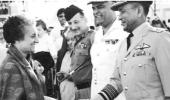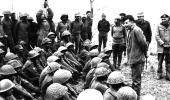'Beyond the 'sir' and the 'salute', there was a man who cared about his soldiers and that's what made him a great leader.'
Field Marshal Sam Manekshaw's grandson Jehan remembers the man who was the soldier's soldier.

On this day 50 years ago, the Indian Army won a spectacular victory over Pakistan under the brilliant leadership of Chief of Army Staff General Sam Manekshaw.
The General was promoted to Field Marshal after the war and is an Indian icon.
Two people who knew him closely were his grandsons Jehan Manekshaw and Raoul Sam Daruwala.
"There was something right and good about what he did during his time in the Army. Soldiers have not forgotten that," says Jehan Manekshaw, head of The Drama School in Mumbai.
"He was a professional soldier. He told the politicians of the day that if the war was to be won, they would have to listen to him."
"Soldiers talk about his leadership, integrity, courage and professionalism as a soldier. These were the values that Sam wanted the army to have and not be corrupted by external agencies and politics," he tells Rediff.com's Archana Masih.
For a soldier who became a legend and an icon of India's military leadership, Field Marshal Manekshaw wore his greatness very lightly, didn't he?
He said that his life was 99% hard work and 1% luck, but for that 1% luck one had to put 99% hard work.
He had done all the hard work and when the opportunity came, it thrust him into the limelight and made him the person in charge at the most critical time.
He was a professional soldier. He told the politicians of the day that if the war was to be won, they would have to listen to him.
In a lecture on leadership in St Xavier's College, Mumbai, which is on YouTube, he said beware of the yes man.
He was concerned about the culture of sycophancy that was starting to take root in politics and the army.
He was grounded and humble because he recognised that first and foremost, he was just a human being.
Once you do that then it is very easy to carry your greatness lightly.
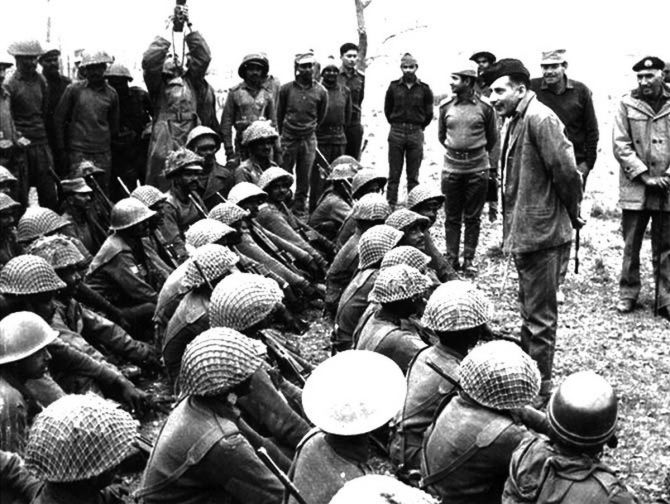
How is he remembered by soldiers you have had the chance to meet over the years?
Whenever I have had the privilege to meet army officers, they shake my hand as soon as they know who I am.
They say thank you and I wonder why they thank me, but I realise they want to honour my grandfather's memory. They are pleased to meet me because they get to reminisce about him.
It is through the eyes of army officers and soldiers that I realise what a figure he was for them.
He represented a value system and stood up for the soldier.
There was something right and good about what he did during his time in the Army. Soldiers have not forgotten that.
Soldiers talk about his leadership, integrity, courage and professionalism as a soldier. These were the values that Sam wanted the army to have and not be corrupted by external agencies and politics.
When you hear army officers and men talk about that you know they are yearning for the same thing.
Field Marshal Manekshaw had brilliant field commanders during the 1971 War. Did he speak to you about them? What were his thoughts?
He was commanding the war from Delhi and hence was in the capital when the war was won.
He could have easily flown to Dacca to take the surrender from Pakistani General A A K Niazi, but he chose not to. He had his General Officer Commanding-in-Chief of Eastern Command Lieutenant General Jagjit Singh Aurora, Chief of Staff Eastern Command Lt Gen J F R Jacob, General Officer Commanding 4 Corps Lt General Sagat Singh among others accept the instrument of surrender.
He even told General Aurora to take his wife along. He felt this was a moment she would remember.
He was not one to come and pose for the photograph.
He remembered his commanders very fondly not only for what they did in the war, but also as people. He would crack jokes and play pranks.
He was a great people's person. If you were in front of him, he took an active interest in you.
Beyond the 'sir' and the 'salute', there was a man who actually cared about his officers and men and that's what made him great leader.
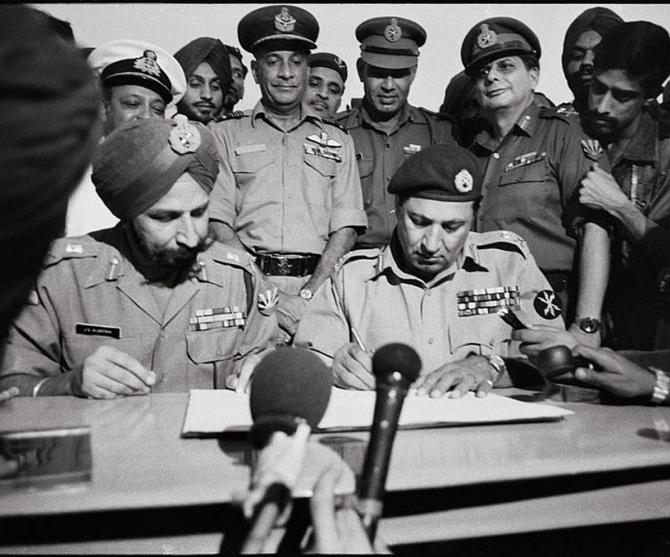
What was his relationship with the Gorkha soldiers deputed to work with him in later life?
The Gorkha soldiers who lived and looked after him had retired from the army with a pension and were looked after by Sam.
Most of them are in Pokhara in Nepal. Some of their children are in active service in the army -- while they joined as soldiers, their sons are officers.
Sam's batman's son joined the Indian Army as an officer and has retired.
One soldier who was doing temporary duty with my grandfather after active service stayed on after retiring. He continues to be with the family and is in charge of the house in Coonoor.
We visit the house very often, at least some family member is there for half the year.
What are some enduring memories of the times you spent with Field Marshal Sam Manekshaw?
I would often spend the summers with him.
I lived with my grandparents and was enrolled in a school in Coonoor for a year when my parents were posted someplace else.
He was a brilliant, hands-on grandparent. He would dress me up in the morning. He set a routine -- meals at fixed times, play time in the garden for 2-3 hours, spending time constructively at home etc.
He made sure I was a well-looked after kid.
Since we were based in Delhi and Bombay, we would get a chance to meet him when he came to attend board meetings. He used to serve on the boards of several companies and would be put up at the Oberoi Hotel. I would take an overnight bag, hang out at his hotel room and have club sandwiches, milkshakes, watch TV and skip my homework!
He was frequently in our lives. We would see him every two months or so. I was very close to him.
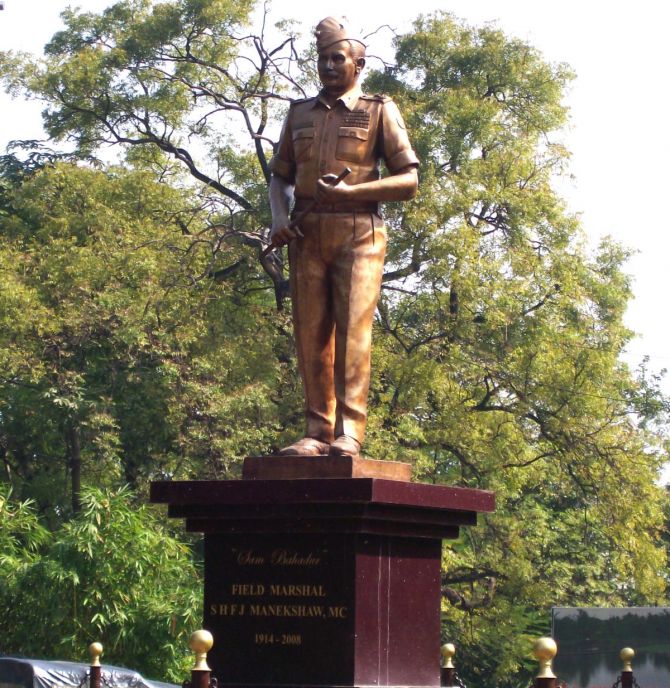
What is the one advice he gave you that you have followed?
There are two.
- Family is most important in life. Love your family.
- Choose any career, but do your best to be the best.
That's what our family tries to live our lives by.
Feature Presentation: Aslam Hunani/Rediff.com
